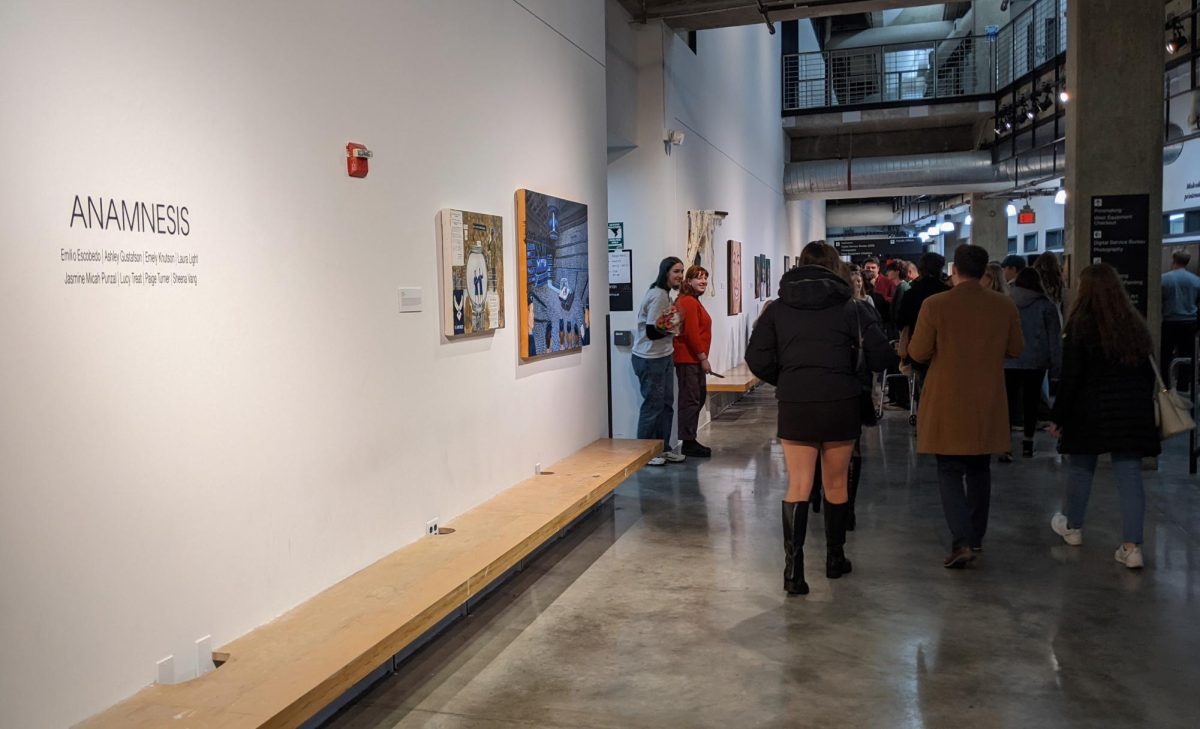The narrator is the glue that keeps a novel from falling apart. It’s a bit of a trite statement straight from high school literature courses, but, for most intents and purposes, it is true. Even with the bias of the untrustworthy narrator (found endlessly in literature, government-funded research results and campaign advertising), readers generally have a feel for who the person telling the tale is and the skepticism required to find the truth. But a narrator who admits her shortcomings as an accurate storyteller, and even goes as far as admitting the faults inherent in her medium while telling the story, is less like glue and more like molasses spread between the pages, covering words up, smearing others, leaving frustrated readers stuck in the goo. The result is apt to be as reliable as the outcome of a game of telephone in a first-year German course.
With her second novel Miniatures (Coffee House Press), though, Minneapolis author Norah Labiner introduces a narrator that pours buckets of the sticky stuff on the page for a reason. The result is a fictional memoir filled with so much apologetic neurosis, tangential diatribes and second-guess storytelling from the narrator that it’s difficult to tell what is true, but crafted so expertly that all of the asides and self-doubt result in a novel that brings into question the authority of memoirists and biographers, and makes the argument that historical truths are based on who you ask.
Labiner’s protagonist is Fern Jacobi, an inexperienced memoirist (according to the novel, this is her first attempt at this) who is most at home in library stacks and has been known to imbibe in the fruits of celebrity biographies as often as possible. Her self-given mission is to commit to paper, in no more than three days, the events of a tumultuous fall spent in the English countryside 10 years ago.
Self-described as “shy, aloof, defensive, intolerant, bitter, once innocent, twice denied,” Jacobi possesses the right amount of self-consciousness to know that her task is an impossible one. In the second chapter she swears to “tell the truth, the whole truth and nothing but the truth, so help me God,” before admitting that, “These truths are situational. Others are relative, suspect or ugly. Watch out for them; they may leave scars or stain the carpet.”
The subjects of Jacobi’s tale are Owen and Brigid Lieb, two well-known American writers who moved from Paris to Owen’s country house in England in search of a place to write unfettered by city life. Jacobi, also on the lam from a confused postgraduate life in the States, worked for a nearby cleaning service when the Liebs moved into the house. Destitute after 30 years of neglect, the house needed more repair and cleaning than Owen and Brigid could handle on their own. Enter Fern Jacobi.
Jacobi was familiar with the Liebs, and even with the history of the house who floors she would be scrubbing. Thanks in part to her love of biographies, Jacobi knew that 30 years ago Owen Lieb lived in the house with his first wife, Franny. Another American writer, Franny Lieb published one highly-acclaimed novel, and was said to be working on a second when she was mysteriously electrocuted in the bathtub on the second floor of the house. Soon after, Jacobi recalls, Owen Lieb moved out of the house and hadn’t returned since. After a few days of working, the couple invited Jacobi to live there while fixing the place up.
What unfolds through Jacobi’s ramshackle memoir is a series of discoveries made in hidden letters written by the late Franny Lieb, uncharacteristic disclosures from Owen Lieb and, eventually, a letter from Franny and Owen’s only son Jonathan. As Jacobi discovers, there is much of Franny’s life that has been missing or misconstrued by her biographers and even by Owen Lieb’s posthumous collection of Franny’s letters. This revelation shakes Jacobi’s perception of those biographies she so treasured.
Arguing with Brigid about a mysterious woman Franny wrote about in her letters, letters that were left out of Owen’s collection, Jacobi exclaims, “She doesn’t exist. She’s gone. She’s disappeared. That’s how it happens. You can write anyone or anything into or out of being. Just because she isn’t in any of the books, the biographies, doesn’t mean that she didn’t exist.”
It’s at this point where Labiner’s skill at crafting her protagonist is revealed. Paging back through Miniatures, it’s easy to find where Jacobi is frantically trying to avoid (or excuse herself) from committing the same crime against history that all those biographers had before. After describing her first encounter with Owen Lieb, she throws in the unneeded caveat, “I didn’t do justice to (Owen’s) entry into this story or into my life. And if I hadn’t told you, maybe you wouldn’t have noticed at all. But that’s me. That’s the kind of girl I am. I feel the need to confess; I’m like one of those nonsensical characters in a movie who throws off the police, the private investigators and the plot by admitting to murders I didn’t commit because I have a guilty conscience.”
It’s this need to fill in every corner of the story and cover all the bases that ultimately leads to Jacobi’s overexplanation of minor details, frequent apologies, and inclusion of what seem to be unrelated accounts of her own life. Tales of her failed loves, her Jewish heritage and her childhood of tangled hair and “occasional violent outbursts, semihabitual thumbsucking, eczema, dark moods and carsickness” appear to be the product of a storyteller that can’t keep straight what story she is telling. But as the entire history of the Liebs is revealed, Jacobi’s seemingly superfluous anecdotes become a very important piece of the puzzle.
In the end, Labiner shows that the popular history of people and places isn’t necessarily so, and the parts of the story that are often left out don’t always fit into any sort of logical, coherent plotline. History, she shows us, can be sticky.







